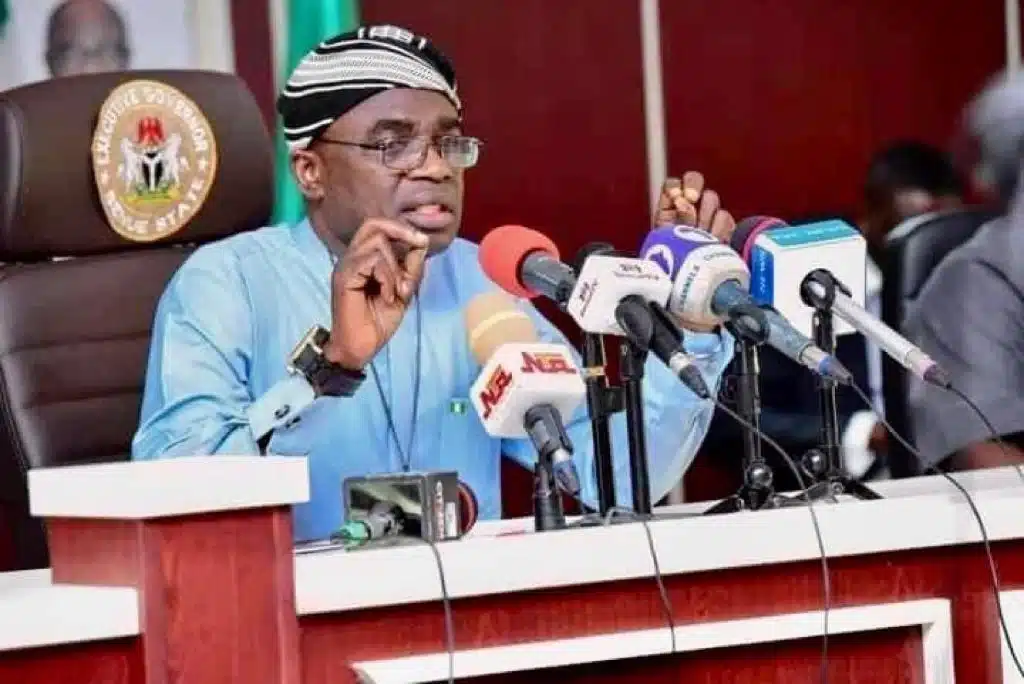The National Orientation Agency (NOA) has declared that the removal of fuel subsidies by President Bola Tinubu in 2023 has rescued Nigeria from the brink of economic collapse.
NOA noted that the decision led to improvements in national revenue, monthly allocations to States and public investment.
This was disclosed in the 45th edition of ‘The Explainer’, NOA’s weekly policy review publication, which was released on Friday.
The latest edition focused extensively on the economic impact of President Tinubu’s decision to end fuel subsidies, a move the agency described as a “historic correction” that ended decades of fiscal strain.
According to the publication, government revenue surged from N154billion to N836billion in the first quarter following the policy’s implementation.
The funds, NOA said, previously spent on subsidies, were redirected into critical sectors, allowing for robust capital investments and economic stabilisation.
“Indeed, the subsidy removal saved Nigeria from bankruptcy, the savings from the declaration that stopped subsidy freed vast resources as government revenue surged from N154bn to N836bn Q1,” the publication revealed.
According to the agency, the positive ripple effect was also felt at the state level, with the Federation Account Allocation Committee (FAAC) disbursing N15.26 trillion to States in 2024, a significant boost that enabled regular salary payments and the reduction of national debt by N1.85 trillion.
In addition, Nigeria’s foreign reserves grew to $38.9 billion, even amidst foreign exchange obligations, reflecting increased fiscal resilience.
The Explainer also highlighted how the reallocated funds have been channelled into long-term development goals. These include the creation of a N20trillion Infrastructure Fund, N54billion in NELFUND for student loans, N1.5trillion investment in agriculture, N1trillion in the solid minerals sector, and the ongoing rollout of Compressed Natural Gas (CNG) transport systems aimed at reducing energy costs.
Crucially, for the first time in recent history, Nigeria’s capital expenditure has now overtaken recurrent expenditure, a sign of stronger fiscal discipline and forward-looking policy direction, according to the Agency.
“This edition also contains many more reports on policies of the Tinubu-led government in the last two years, underlining the administration’s broad focus on reform and investment-led growth,” the publication added.
We’ve got the edge. Get real-time reports, breaking scoops, and exclusive angles delivered straight to your phone. Don’t settle for stale news. Join LEADERSHIP NEWS on WhatsApp for 24/7 updates →
Join Our WhatsApp Channel
 4 hours ago
3
4 hours ago
3















 English (US) ·
English (US) ·